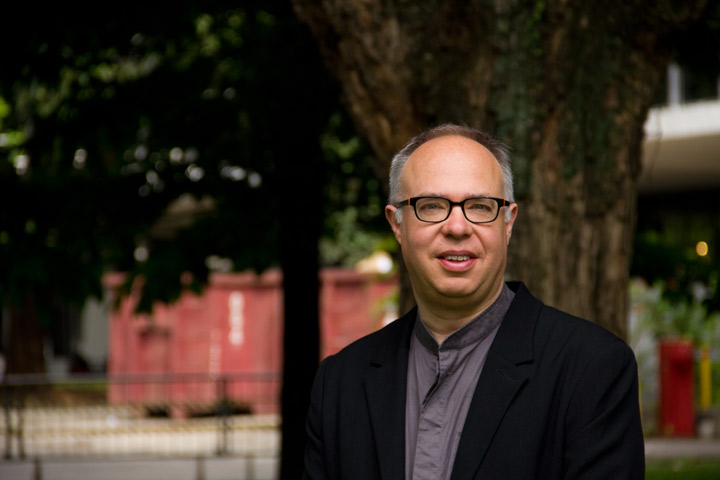In conversation with ArtReview, Charles Esche speaks about what he sees as a paradigmatic shift happening in Europe in the arts and beyond. He speaks about the growing desire for transdisciplinarity, as well as the march away from a universal white male subjectivity. Read the interview in partial below, or in full via ArtReview.
ArtReview: In your introduction to the compendium of artist writings Art and Social Change [2007], you stated that ‘at moments of revolutionary success, there is a subtle elision between inside and outside positions that has produced some of the most powerful work effecting social change’. Given the current conditions of Europe, do you see any possibilities for revolutionary success or even for artists to effect social change?
Charles Esche: To answer the question, I’d have to describe what I think is happening in Europe. It seems to me that we have a full-blown paradigmatic transition going on of the kind that takes at least a generation. I’d say it started with the collapse of socialism in the eastern part of the continent and will end with the collapse of neoliberal capital in the western half. The extent to which this will affect the rest of the world is not clear because part of the transition is that Europe is ceasing to be the dominant continent that determines the rest. The twentieth century, for all of the USA’s economic and cultural success, was still defined in Europe. The two World Wars, the Revolution, the Holocaust and the Cold War were all essentially European disputes that spilled over far and wide. US and Asian decisions were significant, but the key determinants were played out in Europe. That world has come to an end. The outlines of what is emerging is less clear. This is normal, as a paradigm shift is always barely visible until it has already happened. But the economic decline of Europe, the decay of the European Union’s modernist vision and the breakup of the old, powerful nation-states are part of the coming conditions. In this situation, revolution cannot mean what it once did; left and right become empty signifiers; and life reconfigures. It’s not easy, and the role of art is also changing as part of it.
We see part of what it might become in the growing demand to be transdisciplinary and to break out of known protocols; to embrace the margins and deviance as forms of thinking. The early-twenty-first-century centre is no longer attractive. Its continued privileging of white supremacy, the old modern avant-garde (think blockbuster art exhibitions), its tired transgressions and its cult of personality/celebrity look yucky and tired. In response, there is a kind of quiet and casual ‘demodernisation’ in some art that I find inspiring. For me, it’s closely connected to decolonial thinking and how the European legacy across the world can be come to terms with. This is close to a much-extended form of Vergangenheitsbewältigung (poorly translated as coming to terms with the past) that some Germans went through after 1945. I suspect it’s also connected to some forms of what might loosely be called ‘indigenous’ thinking and new relations to ecology too. We need to learn how to construct plural truths and yet manage consistent ethics. We need to move away from monotheism. The different communities engaged with art have a potentially revolutionary role to play in this, especially if they again elide its old claim to autonomous action within the artistic field, with a real stake in a change in thinking about and acting in society. One thing is for sure: any future revolutionary art will look and sound different. It will be focused neither on aesthetics nor politics in the modern understanding of these words. It may not be made by self-identified artists. That would already be a social change, I guess.
*Image of Charles Esche via 31bienial.org
